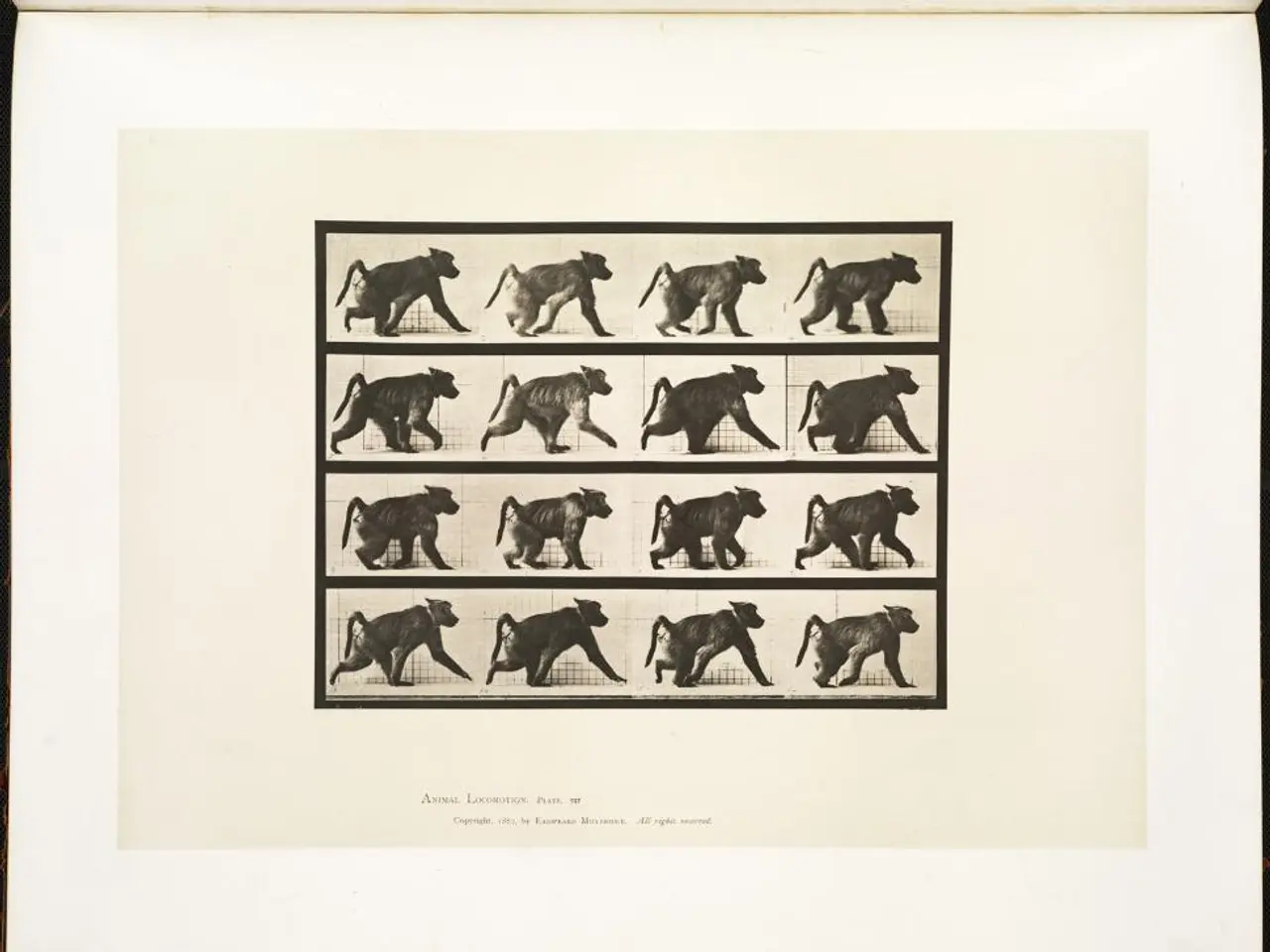Bablyons cruelly killed at the Nuremberg zoo due to a perceived space shortage issue
In a bold move, Pedro Pozas Terrados, Executive Director of the NGO, has called for a Great Apes Law in Spain and internationally to recognize the fundamental rights of great apes and end their unjustified imprisonment. This demand comes in the wake of the controversial euthanization of 12 healthy Guinea baboons at the Nuremberg Tiergarten Zoo in Germany.
The incident, which has sparked criticism from the Great Ape Project for animal abuse and unethical practices, is not an isolated case. Overpopulation in European zoos has led to the 'sacrifice' of baboons, as well as other animals, in the past.
Zoos, according to Pozas, are not conservation centres, but display windows where life is disposable and manipulated with absolute impunity. The environmental organization maintains that these justifications are unacceptable and show that reproduction in captivity only serves to increase collections and does not respond to any real conservation criterion.
The Nuremberg Zoo officials argue that the baboons were euthanized as a 'last resort' due to the impossibility of relocating them and the ineffectiveness of contraceptive methods. However, Pozas insists that it's time to legislate with courage and break with archaic practices that continue to subject millions of animals worldwide to imprisonment and exhibition.
Baboons, like many other species, require specific environments to thrive. They inhabit various environments, including savannas, grasslands, steppes, and tropical forests. Keeping them in public and private zoos denies them the freedom they deserve.
Captivity generates psychological disorders, stereotypic behaviors, isolation, and suffering in animals. It's absolutely unacceptable that people pay to see wild animals in situations that have nothing to do with their life in freedom.
The Great Ape Project condemns the euthanization of the Guinea baboons and demands the immediate expulsion of the Nuremberg Zoo from the European Association of Zoos and Aquaria (EAZA) and the drafting of a Specific Regulation for the Spanish Zoo Law.
In recent years, numerous cases of animal killings in European zoos have been documented, including the case of the lion Marius at the Copenhagen Zoo in 2014, the death of four lions also in Copenhagen, and the elimination of tiger and lion cubs in German zoos.
The NGO urges European, Spanish, and international authorities to legislate with courage and break with archaic practices. They also advocate for the progressive closure of traditional zoos and their transformation into rescue and recovery centres.
Pozas calls for a change, not just for the Guinea baboons, but for all animals subjected to captivity. The NGO concludes that it's not conservation and our only response is to denounce, act, and demand justice when such incidents occur.








